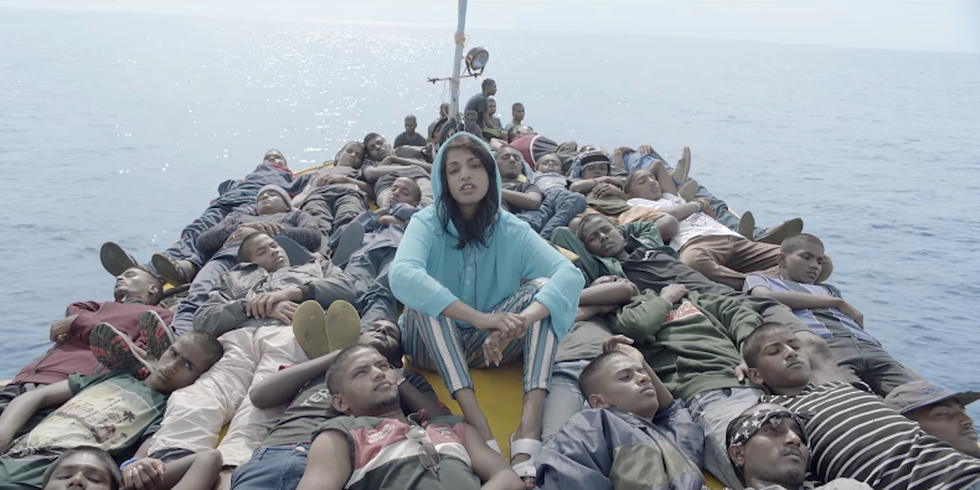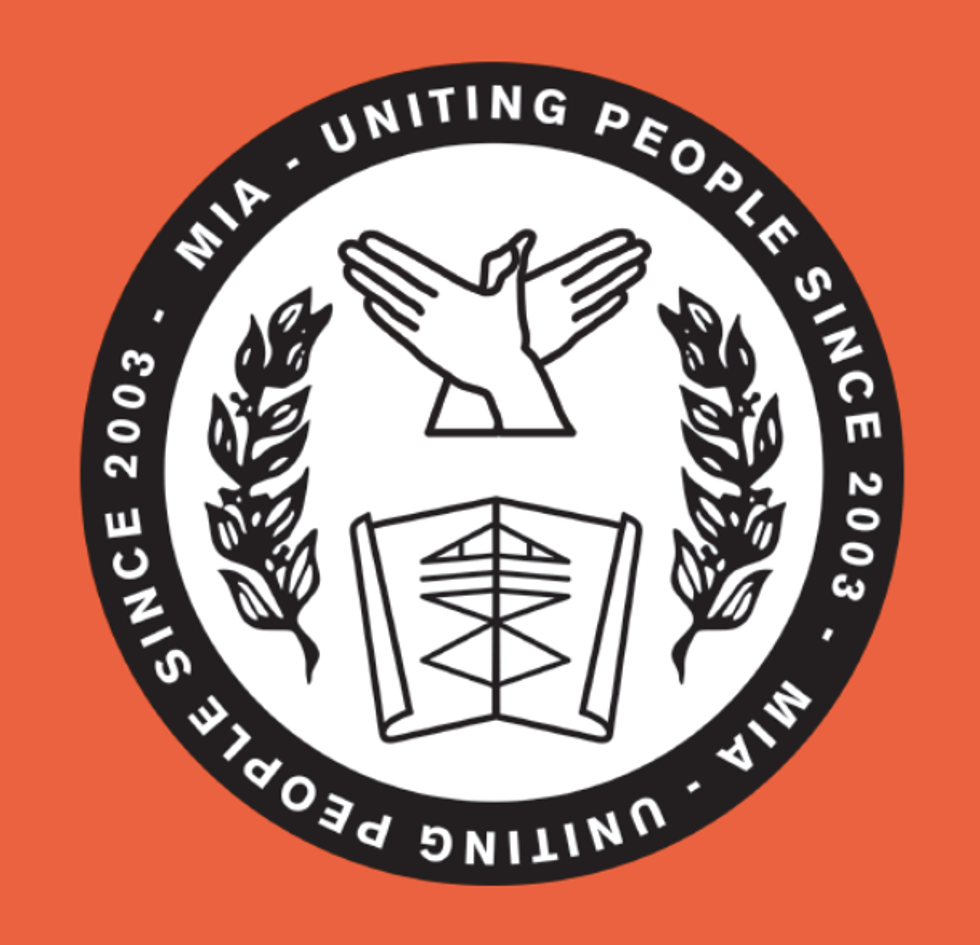Born Mathangi Maya Arulpragasim, M.I.A. first gained full-blown fame in 2008 when her song “Paper Planes,” against all odds, became a huge hit. But M.I.A. has been talking about the plight of refugees since her first single, “Galang”, was released in 2003.
A quick skim down the tracklist of M.I.A.’s newest album, AIM, makes it obvious that this trend will continue. Song titles alone make it abundantly clear that this album, arguably even more than any of her others, will be a complete commentary on the refugees (i.e. “Borders,” “Foreign Friend,” “Visa,” “Fly Pirate,” etc.) In all contexts this focus makes sense: M.I.A. is herself a refugee, the world currently faces a "refugee crisis" and political climates all over the world (looking at you 2016 election) are making conversations about refugees and undocumented immigrants more important than ever.
AIM’s first single and opening track, “Borders,” begins with the poignant yet colloquially phrased question: “Borders, what’s up with that?” Throughout the song, M.I.A. points out the arbitrary systems that Western society has built: Politics, Identities, Egos, Freedom, etc. She follows each of these with the question: “What’s up with that?” And it only gets more serious from there.
“Foreign Friend” explores the commodification and objectification of foreign peoples as a sort of token or bobble for Westerners (i.e. your token Asian friend).
However, “Ali r u ok?” may be the album’s most straightforward statement on the struggles of a refugee. Sleekly combining Western and Eastern beats, the song comes from the point of view of two refugee friends. The titular Ali is overworked and underpaid, an experience of refugees the world over. M.I.A. goes as far as to directly reference Calais, the small French town which is now infamous for being home to a significant refugee camp known as the “Calais Jungle”. Ali responds to her friend’s critiques with the line: “I’m sending bread and bacon home so they can fix what’s broken,” capturing the very essence of the refugee experience.
It is at this middle point of the album that AIM most closely matches the sound of M.I.A.’s first album Arular, which like AIM was centered around the refugee experience. The sly references to all of M.I.A.’s previous albums in “Visa” seem to verify her claim that AIM will be her last album. Additionally, the song’s focus specifically on the Mexican border is, for obvious reasons, very gratifying.
While many reviews have already made the assertion that the album is messy and unfocused, I would say the opposite. This is the most coherent album, sonically and ideologically, that M.I.A. has released since 2007’s Kala.
This doesn’t mean the album isn’t without shortcomings. “Jump In” and “Fly Pirate” feel like definite filler, with “Fly Pirate” being the biggest disappoint.
Luckily, the bonus tracks on the deluxe version bring us back. Lyrically, “Talk” feels like a more straightforward version of “Borders.” “Platforms,” which was teased more than a year ago, is a perfect end to the album. It has sensational production and lyrically fits in well with the rest of the album.
All in all, M.I.A. was right: Her music is definitely better with her politics.
Essential Tracks: “Borders,” “Go Off,” “Freedun (ft. ZAYN),” “A.M.P. (All My People)", “Ali r u ok?”

























